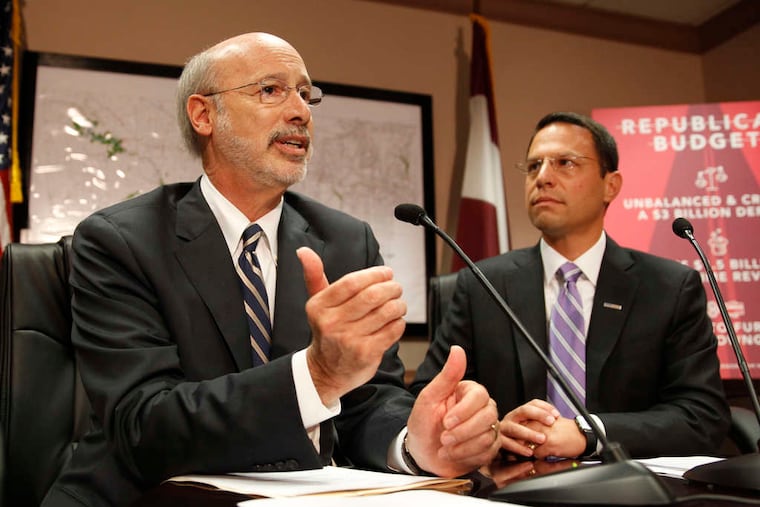No evictions or foreclosures in Pennsylvania through July 10, officials announce
Renters and homeowners across the state have begged officials to extend protections for them as the financial devastation of the pandemic continues.

No one in Pennsylvania can be evicted or have their home foreclosed on due to inability to pay until at least July 10, officials announced Thursday.
Gov. Tom Wolf signed an executive order extending a moratorium on evictions and foreclosures put in place via an order by the state Supreme Court that is set to expire Monday.
Wolf, who announced the decision along with Attorney General Josh Shapiro, said the extension is a public-health necessity aimed at keeping people in their homes to mitigate the spread of the coronavirus. The order also applies to most businesses, they said.
“We cannot be evicting people and defeat this virus,” Wolf said. “It’s much easier to wash your hands if you have a sink.”
But both officials made clear that rent and mortgage payments are still due, and those who don’t pay will accrue back pay and potential late fees. They urged Pennsylvanians struggling to make payments to negotiate with their landlord or mortgage provider.
» READ MORE: Do I have to pay my rent? Renters’ rights in Philadelphia during the coronavirus pandemic.
At the end of April, Shapiro and the Pennsylvania Apartment Association, the trade association for landlords, asked members to not begin eviction proceedings based on nonpayment until at least July 15, but the request wasn’t legally binding. They also asked landlords to waive late fees and extend grace periods for late payments.
As the pandemic has ground economic activity in the state to a halt and forced more than a quarter of the workforce to file for unemployment benefits, renters and homeowners alike have sounded the alarm that a housing crisis could follow.
» READ MORE: Advocates, officials try to prevent Philly’s coming wave of coronavirus evictions
The federal CARES Act included some emergency housing protections, including banning evictions in federally subsidized housing and pausing foreclosures for owners with federally backed mortgages through July.
Some advocates say that’s not enough. Renters in Philadelphia and in other cities across the world have called for a “rent strike," the withholding of rent by tenants whether they can afford it or not, and are calling on state and local officials to freeze rent and mortgage payments.
In Philadelphia, where almost half of residents are renters, 1,700 evictions will be considered once the moratorium is lifted, and landlords are waiting to file for thousands more.
Some members of City Council want to extend protections to stem what they believe could be an avalanche of evictions. Council is considering measures including limiting landlords from increasing rent during the pandemic and for a year after; requiring that late fees be waived during the pandemic and for two months after; and creating an eviction “diversion” program that runs through the end of the calendar year.
City Councilmember Helen Gym, who has backed the measures, said in a statement that Wolf’s order “gives families the assurance they need right now” and gives municipalities time to work out additional solutions. She also called on the state to dedicate a portion of federal relief funds to fund programs for eviction diversion and rental assistance.
Shapiro said renters unable to pay should not expect to be evicted as soon as the moratorium on eviction proceedings is lifted. Under state law, tenants have the right to a court process, which typically plays out over at least several weeks.
He said he understands it’s a “challenging time” for landlords and homeowners, and said some relief is available, including a moratorium on utility shutoffs, as well as assistance through the federal Paycheck Protection Program and the PA CARE Package, the latter of which incentivizes banks expanding loan availability and extending payment grace periods.
“The governor has asked people to stay home. The governor has shuttered businesses, all in the name of public health, and it’s working,” Shapiro said. “What we can’t have at this time is people losing those homes as a result of evictions.”
On Thursday, Gov. Andrew Cuomo of New York extended a moratorium on evictions there through at least Aug. 20.
The Philadelphia Inquirer is one of more than 20 news organizations producing Broke in Philly, a collaborative reporting project on solutions to poverty and the city’s push toward economic justice. See all of our reporting at brokeinphilly.org.